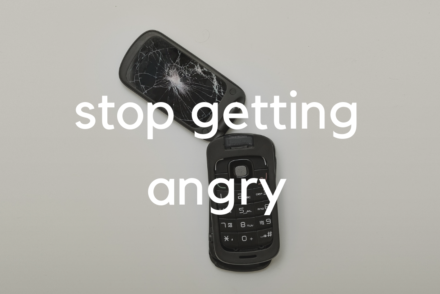A few weeks ago I finished reading the book Reclaiming Conversation: the power of talk in the digital age. I’d recommend it to anyone who has a leadership role in our digitally saturated world. Turkle’s primary point throughout the book is a familiar one – that technology is systematically disconnecting us from each other, particularly those who we are physically present with. The presence of technology that connects us to everywhere except where we actually are leads to a state of constant distraction.
It’s a reality that I’ve seen play out time and again in my years of working with young adults (and being a young adult myself). An awkward silence arises and one person pulls out their phone to escape the discomfort. One by one, the rest of the people in the group pull out their phones as well and the conversation dies. You get bored during a sermon or group discussion, so you switch from your Bible app to your social media app of choice and scroll through, half listening. You walk into a room and look around, seeing that everyone else is already in conversations, so rather than going up and joining a group you grab a seat against the wall and start reading an article.
None of those actions are sins in themselves, but the state of constant distraction and readiness to disconnect from those around us is a kind of sin that must be addressed. Here’s why I think that.
Four problems with constant distraction
1.You can’t fully experience God while distracted
Throughout both scripture and church history the greatest saints have expressed just how essential focused time in God’s presence is for spiritual growth. Many of the most profound moments of experiencing God in scripture are moments where the person was fully focused – whether Moses focused on the burning bush or Peter being asked by Jesus if he loved Him over a sea-side breakfast.
If you’re in a constant state of distraction, ready to pull out your phone and jump away the moment things get quiet or uncomfortable, odds are you’re never going to fully experience God the way you were meant to. If you aren’t experiencing and knowing God the way you’re meant to, you won’t be able to love the way you’re called to.
2. You can’t fulfill the Great Commandment while distracted
Jesus declares the greatest commandment to be “Love the Lord your God with all your heart, soul, mind, and strength” and the second greatest to be loving your neighbor as yourself. Neither of those are possible if you’re living distracted.
To love requires focus and attention – a connection to the one being loved that will not happen halfway. You’ll never love God if you’re not fully present with him. You’ll never love your neighbor if your mind is half submerged in a world of social media. And if you’re not loving, you won’t be able to make disciples.
3. You can’t make disciples while distracted
Flowing out of the great command is what has become known as the Great Commission: “go and make disciples, baptizing them in the name of the Father, Son, and Holy Spirit and teaching them to do all that I have commanded.” You can’t make disciples while distracted. Trust me, I’ve tried.
The times where I’m sitting down and attempting to have a life-changing conversation with someone while simultaneously listening to the conversation behind me or thinking about my phone buzzing in my pocket have resulted in minimal if any of that miraculous life change I was aiming at. But the moments when I’ve set myself to connect fully with the person(s) in front of me – to engage their soul and heart while welcoming the Holy Spirit to do his work are the times I look back on with joy and have had lasting impact. If you want to make disciples you need to set aside the phone, take off the headset, and be here, now.
4. Constant distraction often has roots in fear
Chances are if you paid attention to when you unconsciously grab your phone and start distracting yourself with it you’ll find fear in the driver’s seat. Probably not overwhelming fear – just a slight twinge of discomfort that sits at the beginning of real fear. Maybe it’s an awkward silent moment in conversation, or being alone at home after a stressful day, or riding in public transportation. In each case we’re generally using our technology as a means of escaping discomfort. As we do so we’re also escaping opportunities for growth when we don’t address the things we fear. And fear, my friends, is the antithesis of both love and faith.
Your phone, social media, Netflix, and any other occasional distractions aren’t evil in and of themselves, but a state of constant distractedness – the readiness to escape any discomfort – is a heart issue that must be addressed.
Would you join me in trying something? For the next seven days, intentionally set aside your phone for at least an hour a day. Turn it off or put it in another room. Leave it on silent in your jacket or purse when you have dinner with friends or family. Let the battery die rather than charging it overnight and start your day with an hour of being disconnected from the internet and connected with yourself and with Jesus. Pay attention to how your mind and body respond. It will probably be uncomfortable at first, but my bet is that we’ll discover it’s much easier to hear from God, to respond in love towards him and those around us, and to deal with our discomfort and fear as we do so.





1 Comment
Ben, thanks for reposting this blog. I missed it the first time and it’s well worth the reading for a quick, simple and important challenge.